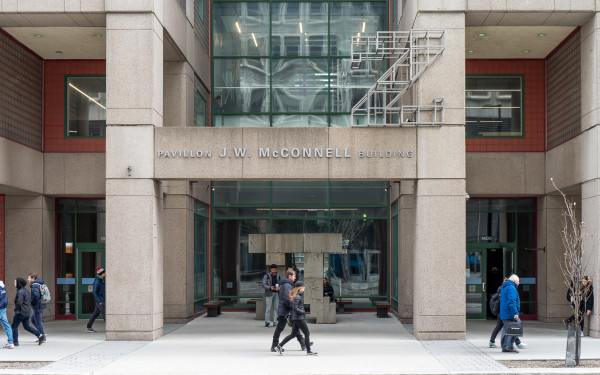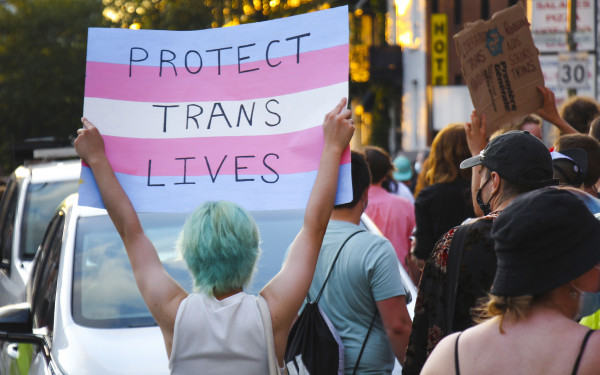Making Your Queer Dreams Come True
Gender B(l)ender Provides a Judgement-Free Stage
In a room lit by fairy lights, a lineup of local artists get on the mic to deliver a multitude of performances.
The audience listens attentively as some performers chose to read out their some of their personal poems or pieces of spoken word. Others opted to sing in multiple languages. There is a sense of safety for the queer community.
Gender B(l)ender, Montreal’s queer open stage event took place at Studio 303 of the Belgo Building in the Quartier des spectacles on August 25. It featured a number of diverse local queer artists .
Gender B(l)ender was founded in May 2013 by artist Kama La Mackerel, who is a trans woman of colour herself. It has been running for four years.
The event is a safe space that was formed for artists to express themselves without judgment, and is held on the last Friday of every month. It was created mainly for the LGBTQ+ community and caters to their needs and demands. “If we will be doing this kind of work we need to show the communities that we’re working for that we care,” Le Mackerel explained.
Oppressive language and behavior was prohibited and performers gave trigger warnings before their performances to give the audience the option to walk in and out as they please. The artists were also required to ask for consent if their performance involved using audience members as volunteers.
Le Mackerel was inspired to create Gender B(l)ender when she realized that there were rarely marginalized artists performing at open mic events.
“I think the reason it’s been running for so long is because the space is needed,” said La Mackerel. “People keep coming back because there is a void for marginalized artists, especially queer and trans people of colour. I realized in time that there’s that space lacking in Montreal and that’s what Gender B(l)ender fills.”
Many performed spoken word pieces and poems at last week’s Gender B(l)ender addressed the events of Pride Montreal. Although Pride had promised to be an inclusive space for the LGBTQ+ community, many queer and trans people of colour still did not feel safe attending some of the events.
“Even at Pride’s safer space for trans people of colour, police arrived and arrested a Black youth and dragged them across the parc,” said La Mackerel. She had hosted a concert called Excellence as part of Pride that solely featured queer trans artists of colour.
“My co-host, who is also a Black woman, and myself were harassed and bullied by a white cis male Pride staff member [at the Excellence show],” Le Meckerel explained. “Pride has been talking this lovely talk but I want to see them walk the walk.”
Pride Montreal was unavailable to comment on these events.
Asher Lionheart, who has been performing at Gender B(l)ender for three years, explained that the event holds a space where skill isn’t a factor in the audience’s reception. Here, artists can explore themes that might be considered as taboo elsewhere.
“As a young performer, being able to perform about anything in a creative way and come back to a loving audience who wants to hear more every month is great,” said Lionheart.
First time performer Iyan Hayadi was thrilled to be a part of the event as he dreamed of being a performer before moving to Canada.
“The audience is very supportive, you can tell that they’re happy to be here and want to listen to you,” he said. “When I came here tonight I understood how important it is to hear yourself and to hear other people around you doing the same. You support it and give them confidence.”



_(1)_600_375_s_c1.png)


_600_375_s_c1.png)